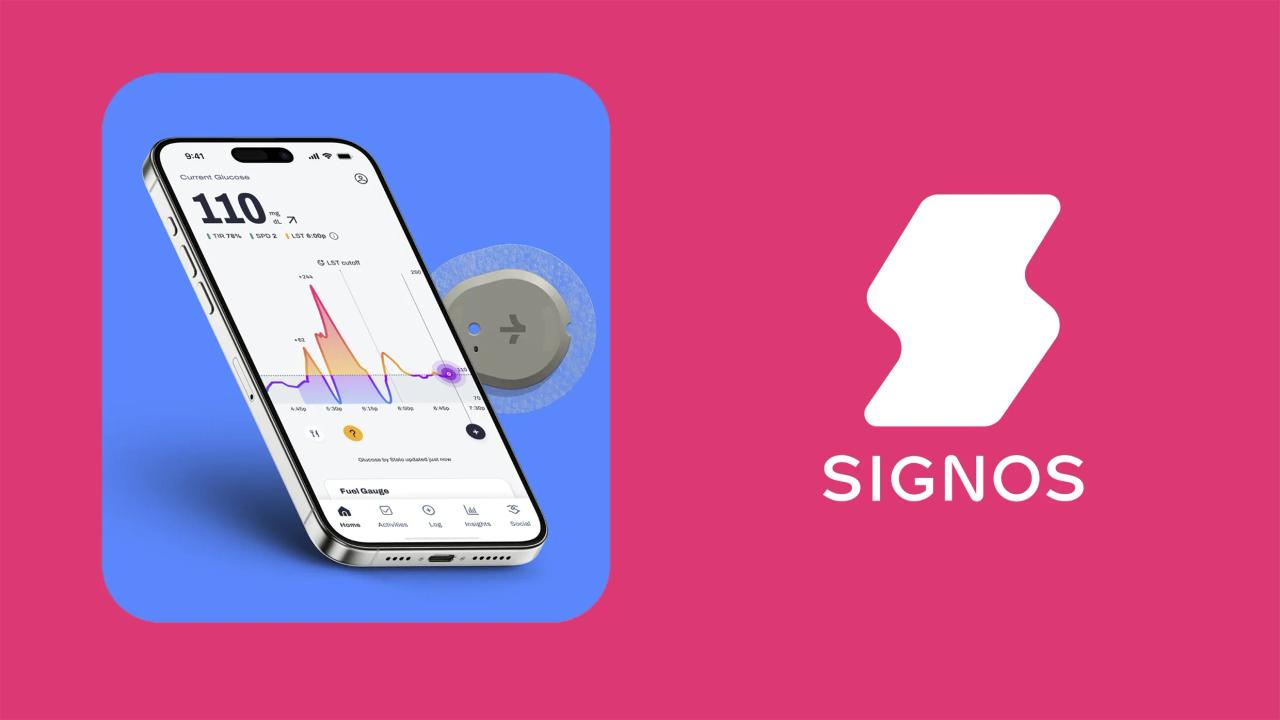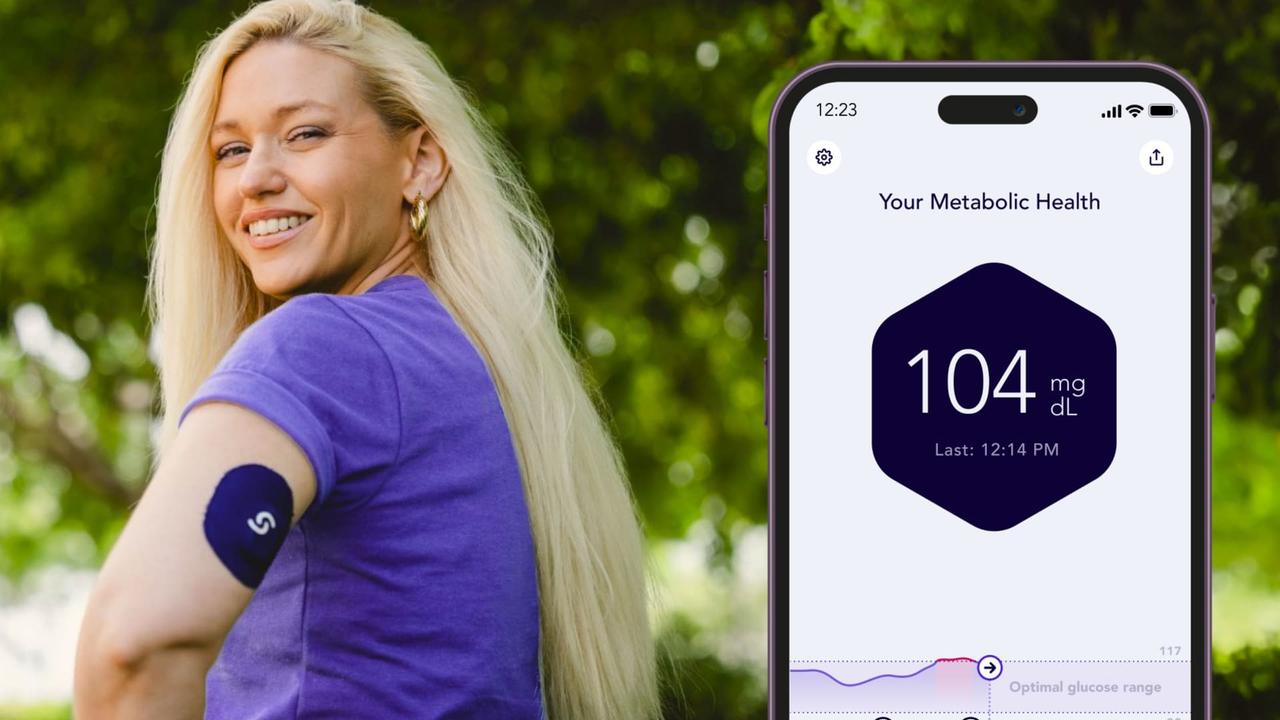FDA Approves Signos' AI-Powered Glucose Monitoring System for Weight Loss
2 Sources
2 Sources
[1]
FDA approves first-ever glucose monitoring system for weight loss from Signos
The system can be used in combination with or after other existing weight loss treatments such as GLP-1s or bariatric surgery. The Food and Drug Administration on Wednesday approved the first-ever glucose monitoring system specifically for weight loss from the startup Signos, establishing a new option for Americans to manage their weight. Current treatment options for losing weight - popular drugs like GLP-1s and surgical interventions - are typically limited to patients with obesity or a certain BMI. Obesity drugs such as Novo Nordisk's Wegovy and Eli Lilly's Zepbound can also be difficult to access due to their high costs, limited U.S. insurance coverage and constrained supply. But now, any patient can purchase a Signos membership to access its system. It uses an AI platform and an off-the-shelf continuous glucose monitor, or CGM, from Dexcom to offer personalized, real-time data and lifestyle recommendations for weight management. "There is now a solution that everybody can use to help on the weight loss journey, and you don't have to be a certain number of pounds to use it. It's available for the average American who needs it," said Sharam Fouladgar-Mercer, Signos' co-founder and CEO, in an interview on Tuesday ahead of the approval. "The average person might have five pounds to lose, or others might have 100 pounds to lose. We are here to help them at any point in that journey." The obesity epidemic costs the U.S. health-care system more than $170 billion a year, according to Centers for Disease Control and Prevention data. Almost 74% of Americans are overweight or obese, government data says. Signos hopes it can make a "real big dent in that curve for the betterment of many of us," Fouladgar-Mercer said. Customers who sign up for Signos can choose a three-month or six-month plan, which currently costs $139 and $129, respectively. The company will ship out all of the CGMs a patient needs for the number of months in the plan they choose. Insurers currently don't cover the system for weight management, but the plans are a fraction of the roughly $1,000 monthly price of GLP-1s in the U.S. Signos is working with health insurance companies and employers to get coverage for the system, the company said in a statement to CNBC. Signos said it expects "this to evolve quickly as interest for tackling weight continued to expand." The Signos system can be used in combination with GLP-1s or bariatric surgery, said Fouladgar-Mercer. He said patients can also use the system after getting off a GLP-1 to maintain their weight loss. CGMs are small sensors worn on the upper arm that track glucose levels, mainly for people with diabetes. That data is wirelessly sent to Signos' app, which also allows patients to log their food intake and exercise levels, among other information that the AI platform uses to make recommendations. Apart from helping people lose pounds, the system aims to help users understand how their bodies respond to specific foods and exercise patterns and make the right behavioral changes to manage and maintain their weight in the long term. Signos did not share how many patients are currently using its glucose monitoring system, but Fouladgar-Mercer said tens of thousands of people have already tried it over time. He said Signos has scaled up its CGM inventory and software capacity to "handle a pretty massive scale" following the approval.
[2]
A new FDA-approved device could change how Americans lose weight
Signos' glucose-tracking system uses AI and real-time data to guide healthier habits -- no prescription required. Small wearable patches that continuously scan your blood and zap numbers to your smartphone are about to be everywhere. Once the sole domain of people with diabetes, glucose monitors are gaining popularity as a health tracking accessory not that different from an Apple Watch or an Oura Ring. On Wednesday, the FDA approved a glucose monitoring system from the startup Signos for weight management - a first for the tech, which represents a growing corner of the digital wellness space. "Everyone deserves access to insights that help them live healthier, longer, more vibrant lives," Signos CEO Sharam Fouladgar-Mercer said in a press release. "Signos isn't just about data; it's about giving people ownership over their health and weight journeys in a way never before seen."
Share
Share
Copy Link
The FDA has approved Signos' glucose monitoring system, which uses AI and continuous glucose monitors to provide personalized weight management recommendations. This marks a significant development in accessible weight loss technology.
FDA Approval for Signos' Innovative Weight Loss Technology
In a groundbreaking development for the weight management industry, the Food and Drug Administration (FDA) has approved the first-ever glucose monitoring system specifically designed for weight loss. Created by the startup Signos, this innovative technology combines artificial intelligence (AI) with continuous glucose monitoring (CGM) to offer personalized weight management solutions
1
2
.How Signos' System Works

Source: Fast Company
The Signos system utilizes an AI platform in conjunction with an off-the-shelf continuous glucose monitor from Dexcom. This combination provides users with real-time data and personalized lifestyle recommendations to aid in their weight loss journey. The CGM, a small sensor worn on the upper arm, tracks glucose levels and wirelessly transmits this data to the Signos app
1
.Users can log additional information such as food intake and exercise levels, which the AI platform uses to generate tailored recommendations. This comprehensive approach aims not only to help users lose weight but also to understand how their bodies respond to specific foods and exercise patterns, enabling long-term behavioral changes for sustainable weight management
1
.
Source: CNBC
Accessibility and Pricing
Unlike current weight loss treatments such as GLP-1 drugs or bariatric surgery, which are typically limited to patients with obesity or a specific BMI, Signos' system is available to anyone seeking to manage their weight. This accessibility marks a significant shift in the weight loss market
1
.Signos offers flexible membership plans:
- Three-month plan: $139 per month
- Six-month plan: $129 per month
These prices are considerably lower than the approximately $1,000 monthly cost of GLP-1 drugs in the U.S., making it a more accessible option for many Americans
1
.Potential Impact on the Obesity Epidemic
With nearly 74% of Americans classified as overweight or obese and the obesity epidemic costing the U.S. healthcare system over $170 billion annually, Signos' technology could play a crucial role in addressing this widespread health issue
1
.Sharam Fouladgar-Mercer, Signos' co-founder and CEO, emphasized the system's broad applicability: "There is now a solution that everybody can use to help on the weight loss journey, and you don't have to be a certain number of pounds to use it. It's available for the average American who needs it"
1
.Related Stories
Integration with Existing Weight Loss Methods
The Signos system can be used in combination with or after other weight loss treatments such as GLP-1 drugs or bariatric surgery. This flexibility allows patients to incorporate the technology into their existing weight loss strategies or use it as a maintenance tool after completing other treatments
1
.Future Prospects and Market Potential
While insurers currently do not cover the Signos system for weight management, the company is actively working with health insurance companies and employers to secure coverage. As interest in weight management solutions continues to grow, Signos expects rapid evolution in this area
1
.The approval of Signos' glucose monitoring system for weight loss represents a significant step forward in digital health technology. By making personalized, data-driven weight management accessible to a broader population, this innovation has the potential to revolutionize how Americans approach weight loss and overall health management
2
.References
Summarized by
Navi
[2]
Related Stories
Dexcom Integrates AI-Powered Reports into Stelo Glucose Monitor for Enhanced Personalization
18 Dec 2024•Technology

Oura Ring Introduces AI-Powered Meal Tracking and Glucose Monitoring Features
07 May 2025•Technology

AI-Powered Video Analysis Shows Promise for Non-Invasive Blood Pressure and Diabetes Screening
26 Nov 2024•Health

Recent Highlights
1
ByteDance's Seedance 2.0 AI video generator triggers copyright infringement battle with Hollywood
Policy and Regulation

2
Demis Hassabis predicts AGI in 5-8 years, sees new golden era transforming medicine and science
Technology

3
Nvidia and Meta forge massive chip deal as computing power demands reshape AI infrastructure
Technology





